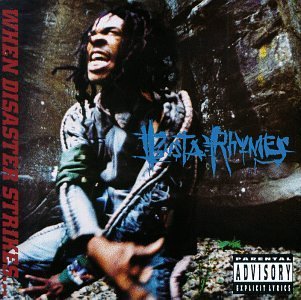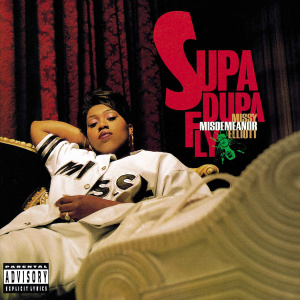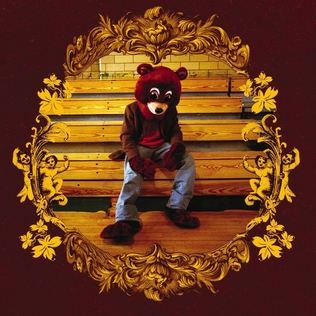lmao
Please Hammer, Don't Hurt 'Em (1990)[edit]
Main article:
Please Hammer, Don't Hurt 'Em
Notorious for dissing rappers in his previous recordings, Hammer appropriately titled his third album (and second major-label release)
Please Hammer, Don't Hurt 'Em,
[57] which was released February 12, 1990 (with an original release date of January 1, 1990).
[58] It included the successful single "
U Can't Touch This" (which
sampled Rick James' "
Super Freak"). It was produced, recorded, and
mixed by
Felton Pilate and James Earley on a
modified tour bus while on tour in 1989.
[59] Despite heavy airplay and a #27 chart debut, "U Can't Touch This" stopped at #8 on the
Billboard Hot 100 chart because it was released only as a twelve-inch single.[
clarification needed]
However, the album was a #1 success for 21 weeks, due primarily to this single, the first time ever for a recording on the pop charts. The song has been and continues to be used in many
filmmaking and
television shows to date, and appears on
soundtrack/
compilation albums as well.
[60]
Follow-up successes included a cover of
the Chi-Lites' "
Have You Seen Her" and "
Pray" (a beat sampled from
Prince's "
When Doves Cry" and
Faith No More's "
We Care a Lot"),
[61] which was his biggest hit in the US, peaking at #2. "Pray" was also a major
UK success, peaking at #8.
The album went on to become the first hip-hop album to earn diamond status, selling more than 18 million units to date.
[2][3][4][5] During 1990, Hammer toured extensively in
Europe which included a sold-out concert at the
National Exhibition Centre in
Birmingham. With the sponsorship of
PepsiCo International,
Pepsi CEO
Christopher A. Sinclair went on tour with him during 1991.
The album was notable for sampling other high-profile artists and gave some of these artists a new fanbase. "Dancin' Machine" sampled
The Jackson 5, "Help the Children" (also the name of an
outreach foundation Hammer started)
[62] interpolates
Marvin Gaye's "
Mercy Mercy Me (The Ecology)", and "She's Soft and Wet" also sampled Prince's "
Soft and Wet". All of these songs proved to be successful on radio and video television, with "U Can't Touch This," "Pray" (most successful), "Have You Seen Her," "Here Comes the Hammer," and "Yo!! Sweetness" (
UK only) all charting. The album increased the popularity of hip-hop music. It remains the genre's all-time best-selling album.
[63]
A movie also accompanied the album and was produced in 1990, called
Please Hammer, Don't Hurt 'Em: The Movie (with portions of his
music videos included within the movie).
[64] At the same time, he also appeared in The
West Coast Rap All-Stars posse cut "
We're All in the Same Gang." Music videos from this album and the previous albums began to receive much airplay on
MTV and
VH1.
M.C. Hammer also contributed a track, "This is What We Do", to the 1990 Teenage Mutant Ninja Turtles movie soundtrack on SBK Records.
A critical backlash began over the repetitive nature of his lyrics, his clean-cut image, and his perceived over-reliance on sampling others' entire
hooks for the basis of his singles—criticisms also directed to his contemporary,
Vanilla Ice. He was mocked in music videos by
3rd Bass (including a
rap battle with
MC Serch),
The D.O.C., DJ Debranz, and
Ice Cube.
Oakland hip-hop group
Digital Underground criticized him in the CD insert of their
Sex Packets album by placing Hammer's picture in it and referring to him as an unknown
derelict.
Q Tip criticized him in "Check the Rhyme," asking, "What you say Hammer? Proper. Rap is not pop, if you call it that then stop."
LL Cool J dissed him in "To tha Break of Dawn" (from the
Mama Said Knock You Out album), calling Hammer an "amateur, swinging a Hammer from a bodybag [his pants]," and saying, "My old gym teacher ain't supposed to rap.", though this could have been seen as a response to Hammer calling him out in "Let's Get it Started", when he was mentioned along with
Run DMC and
Doug E Fresh as rappers that Hammer claimed to be better than. (LL Cool J would later compliment and commend Hammer's abilities/talents on
VH-1's
100 Greatest Songs of Hip Hop, which aired in 2008). However,
Ice-T came to his defense on his 1991 album
O.G. Original Gangster: "A special shout out to my man M.C. Hammer: a lot of people dis you, man, but they just jealous." Ice-T later explained that he had nothing against people who were
pop-rap from the start, as Hammer had been, but only against
emcees who switch from being hardcore or dirty to being pop-rap so that they can sell more records.
Despite the criticisms, Hammer's career continued to be highly successful including tours in Asia, Europe, Australia, and Russia. Soon after, M.C. Hammer Mattel dolls, lunchboxes, and other merchandise were marketed. He was also given his own Saturday morning cartoon, called Hammerman, which he hosted and voiced.
[65]














